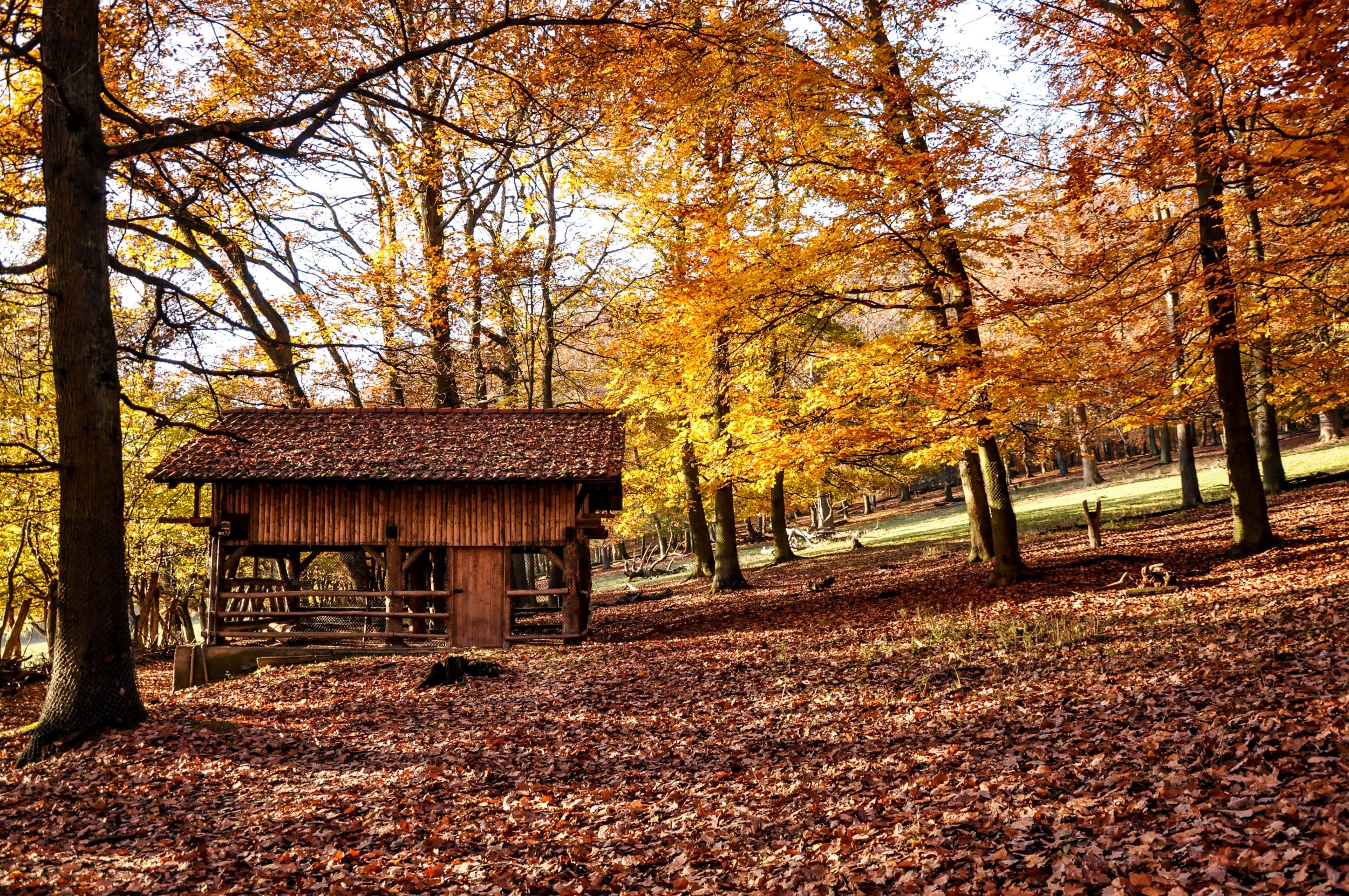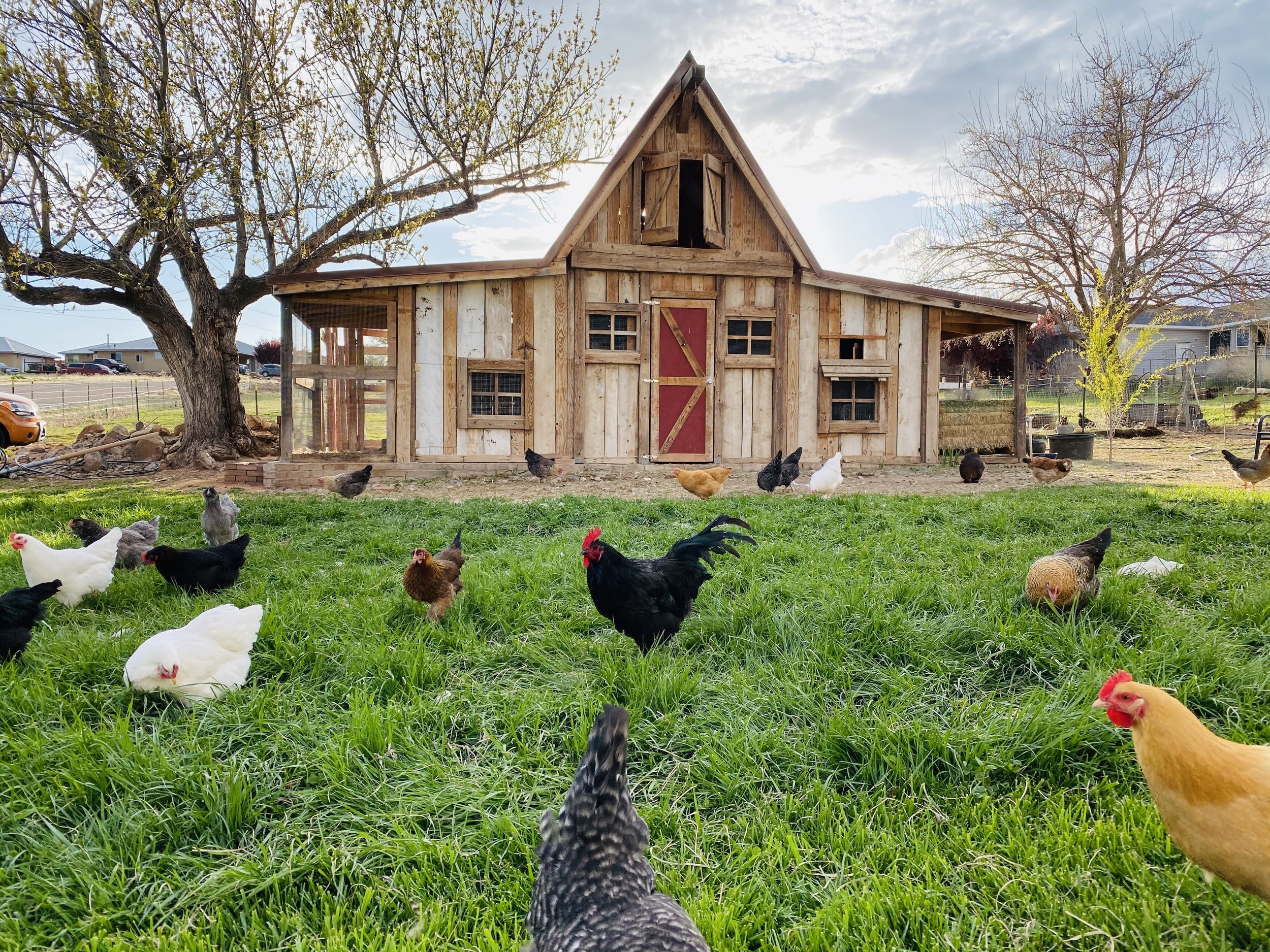Why a Chicken Coop Heater is Totally Unnecessary
Every winter, I feel like I get into a debate with one of my friends, family members, or other well-intentioned visitors who is concerned that my chickens are too cold in their coop.
We haven’t heard any comments this year because our chickens are now contained in a cozy 30’x96’ hoop house.
However, in the past, we used to get a lot of questions about how our chickens could possibly survive in the sub-zero temperatures we typically receive.
The short answer?
Well, they’re animals.
And if your chickens could talk, they would likely tell you the same thing:
PLEASE stop heating our chicken coop!
Here’s why your chicken coop does not need to be heated - and a few reasons why you should avoid doing this.
**J&R Pierce Family Farm is a participant in the Amazon Services LLC Associates Program, an affiliate advertising program designed to allow sites to earn advertising fees by linking to products on Amazon. I often link to Amazon when recommending certain products, and if you choose to purchase, I may earn a small percentage of the sale. It costs you nothing extra, and all recommended products are ones that I personally vouch for. **
Should I Put a Heater in My Chicken Coop?
In the midst of winter, it's only natural to want to protect your chickens from the cold. However, putting a heater in your chicken coop is not always the best solution. Here are a few reasons why:
Chickens are actually quite tolerant of cold weather, as long as they have access to shelter and a dry, draft-free space.
Heaters can be a fire hazard, and if your coop is small, the risk is even greater.
If the temperature inside the coop gets too warm, it can lead to respiratory problems in chickens.
Heaters can be costly to operate, and they can also raise the humidity levels inside the coop, which can lead to other problems such as mold growth and frostbite on your chickens’ combs.
Overall, it's best to avoid using a heater in your chicken coop. If you're concerned about your chickens being too cold, take some simple measures to insulate their shelter and give them access to plenty of fresh air.
Here are a few ways you can add insulation to your chicken coop:
1. Most Chickens Are Designed to Be Outdoors
For the most part, classic chicken breeds are well-adapted to outdoor life. They don’t need fancy, insulated coops with expensive heaters.
In the past, chickens would sleep in the barn along with the other farm animals. In our case, our chickens sleep with our sheep. The body heat alone is enough to keep them warm.
Heritage chicken breeds, like Rhode Island Reds, Orpingtons, New Hampshires, and Wyandottes, are generally well-equipped with all the natural defenses they need to stay warm and cozy.
2. Pick the Right Chicken for Your Climate
Most chickens are pretty hardy but if you’re worried about them being vulnerable, simply select breeds that are indigenous (or at least adapted) to your area. Here’s a list of some of the best heat-tolerant breeds.
If you live in a cold climate, look for a single-combed chicken with dense feathers and a high body mass. These birds tend to resist frostbite better than smaller, lighter birds.
If you raise fragile birds like Silkies, you simply aren’t going to be able to keep them warm and dry in a harsh winter climate. Be smart about which breeds will work well for your area.
3. There Are Better, More Natural Ways
Rather than hedging your bets on a heater, consider implementing the following tips in your coop:
Proper ventilation (too much moisture is just as likely to cause frostbite as the cold)
Deep litter bedding (it will produce heat as it breaks down)
Put some straw bales around the outside or interior walls of the coop (but remember to maintain ventilation)
Keep at least six hens in a coop, but more if your coop is larger (this will provide them with ample body heat)
Make sure your roost bars are constructed so your birds can curl their bodies over their toes to stay warm
Provide scratch grain or other high-calorie treats right before bedtime
House your chickens with other livestock, like goats, sheep, or cows
4. A Heater Can Be Unpredictable
Heater working great? Perfect. Chickens loving it? Even better.
But I’ll bet your heater is powered by electricity. And what’s going to happen when the power goes out?
The temperature is going to plummet, and your chickens are going to be used to the warmer temperatures.
Just like when you go outside without your coat on, it’s going to be tough for the chickens to acclimate right away. This can cause their core body temperatures to drop before they have time to adjust.
5. ...And It Can Be Dangerous
Threats to your chickens’ safety aside, a heater in the chicken coop is notoriously dangerous. Even the commercial panel-style heaters that are supposed to be safer and fire-resistant are still reliant on electricity - and whenever you introduce electricity, there’s the potential for fire.
Even worse, many people use whatever heater they can get their hands on to heat the coop. When paired with dry bedding and flying chickens, that’s a recipe for disaster.
The Only Exception to the No-Heat Rule
There are some people who argue that heat is necessary if the temperature is suddenly going to drop twenty degrees from the norm.
I disagree with this because I firmly believe that chickens are equipped with the natural instincts to detect when bad weather is coming in. This is purely anecdotal, but we’ve noticed that our 75 layers slow or completely stop production when a cold front or snowstorm is coming in.
However, there is one exception that I believe in.
If you have very young chicks that are not yet feathered out - or birds that are molting - and you experience extremely cold weather, some heat is necessary.
For young chicks, I recommend using this heating plate. It not only will keep your chicks warm, but it will do so in a safer way.
Please...whatever you do, ditch the coop heater! Nine times out of ten, your chickens don’t need it - and if it is that cold, there are almost always ways to get around it with safer fixes.
Do you use a heater in your coop - and if so, what are your reasons for doing this? I’d love to know your thoughts!
Want to learn more about raising chickens? Be sure to check out these articles!
Subscribe to our email newsletter for regular tips and tricks on homesteading and farming – wherever you are. You can also follow us on Instagram (@jrpiercefamilyfarm) and Pinterest (J&R Pierce Family Farm) for frequent updates. Happy homesteading!








